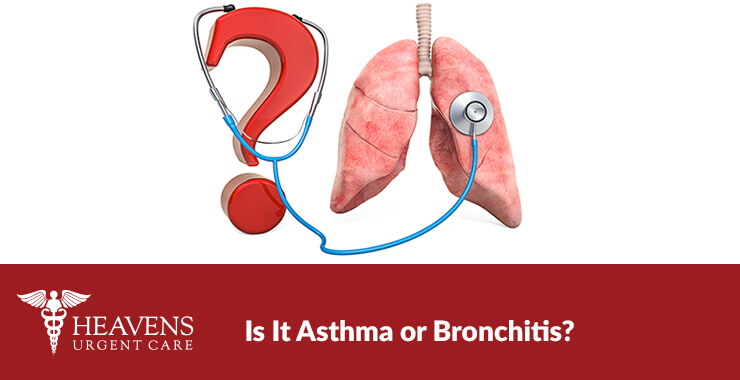Fevers are a natural part of the body’s defense system, that come about as we fight off infection. While mild fevers in adults are usually not a cause for worry, higher or prolonged fevers can signal a more serious condition.
Here’s what you need to know about fevers in adults, when to seek medical care, and how to manage them effectively.
What's considered a fever?
A fever occurs when the body’s temperature rises above the normal range (98.6°F or 37°C). In adults, a fever is generally considered to be 100.4°F (38°C) or higher. Common causes of fever in adults include:
- Viral infections (e.g., flu, COVID-19, colds)
- Bacterial infections (e.g., pneumonia, strep throat, urinary tract infections)
- Inflammatory conditions (e.g., rheumatoid arthritis, lupus)
- Heat exhaustion or heat stroke
- Certain medications or vaccines
- Autoimmune disorders
- Cancer (in rare cases, fevers can be a symptom of malignancy)
INTERESTING FACT: While fevers in children can spike quickly and often resolve without intervention, adult fevers tend to be more indicative of underlying medical conditions.
Adults also have stronger immune systems, so when a fever develops, it can be a sign that the body is struggling with a more significant infection or inflammation.
Fevers can be classified into acute, sub-acute and chronic fevers based on duration. Acute fevers (<7 days in duration) are characteristics of infectious diseases such as malaria and viral-related upper respiratory tract infection, while sub-acute fevers (usually not more than 2 weeks in duration) may be seen in cases of typhoid fever and intra-abdominal abscess, among others.
Chronic or persistent fevers (>2 weeks duration) are typical of chronic bacterial infections such as tuberculosis, viral infections like HIV, cancers and connective tissue diseases. NOTE: Any cause of acute fever can become persistent or chronic if untreated.
Common Fever-Related Illnesses in Arizona

Arizona’s unique climate and environment create conditions for certain illnesses that may not be as common in other states. Here are a few fever-causing illnesses Arizonans should be aware of:
Valley Fever (Coccidioidomycosis)
- Caused by a fungus found in Arizona’s dry soil.
- Symptoms include fever, fatigue, cough, and chest pain.
- Can become severe in immunocompromised individuals.
West Nile Virus
A mosquito-borne illness more common in Arizona during the warmer months. Symptoms include fever, headache, body aches, and swollen lymph nodes. In severe cases, it can lead to neurological complications.
Heat Exhaustion and Heat Stroke
Arizona’s extreme heat can cause fever-like symptoms. Heat stroke is a medical emergency that requires immediate cooling and hydration.
Hantavirus Pulmonary Syndrome
A rare but serious virus transmitted by exposure to infected rodent droppings. Symptoms include fever, muscle aches, and respiratory distress.
Dengue Fever (Emerging Risk)
Arizona’s proximity to Mexico increases the risk of dengue, a mosquito-borne illness. Symptoms include high fever, rash, and severe joint pain.
Flu and COVID-19
Both are prevalent in Arizona, particularly during the winter months. Fevers from these viruses are often accompanied by respiratory symptoms.
Debunking Common Fever Myths

There are many misconceptions about fevers, so let’s clear up some common myths floating around:
Myth #1: Any Fever Is Dangerous
Not all fevers are harmful. A mild to moderate fever (100.4°F to 102°F) is usually a sign that your immune system is doing its job. A fever alone is not dangerous unless it reaches above 103°F or is accompanied by severe symptoms.
Myth #2: A Fever Must Be Treated Immediately
Fevers are part of the body’s natural defense system. Unless they cause significant discomfort, they don’t always need to be lowered with medication. Letting the fever run its course can help the immune system fight off the infection.
Myth #3: You Should Take an Ice Bath to Lower a High Fever
Extreme cooling methods like ice baths can be dangerous and cause shivering, which actually raises body temperature. Instead, use lukewarm baths or cool compresses to help bring the fever down gradually.
Myth #4: If You Have a High Fever, You Must Have an Infection
While infections are a common cause of fevers, other factors like autoimmune conditions, certain medications, heat exhaustion, or inflammatory diseases can also cause a fever.
Myth #5: A Fever Above 104°F Will Cause Brain Damage
Brain damage from a fever is extremely rare. The body has built-in mechanisms to prevent dangerously high temperatures. However, fevers above 107.6°F (42°C) can be dangerous and require emergency medical attention.
When to Seek Medical Care for a Fever
Most mild fevers can be managed at home. Treat them with simple remedies, like rest and hydration, over-the-counter medications to reduce fever and discomfort, and cooling compresses. If symptoms worsen of persist, seek immediate medical care, especially if you experience:
- A fever above 103°F (39.4°C)
- A fever lasting more than three days
- Severe headache, confusion, or difficulty breathing
- Persistent vomiting, diarrhea, or dehydration signs (e.g., dizziness, dry mouth, reduced urination)
- Stiff neck and sensitivity to light (potential signs of meningitis)
- Rash that doesn’t fade under pressure or is spreading
- Chest pain or irregular heartbeat
- Recent travel to an area with infectious disease outbreaks
- Weakened immune system due to chronic illness, cancer treatments, or immunosuppressant medications
Fevers in adults are often manageable but knowing when to seek medical care is crucial. When in doubt, seek us out! Our team is ready to assess and treat fevers, ensuring you get the care you need when you need it most.







